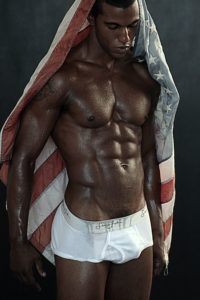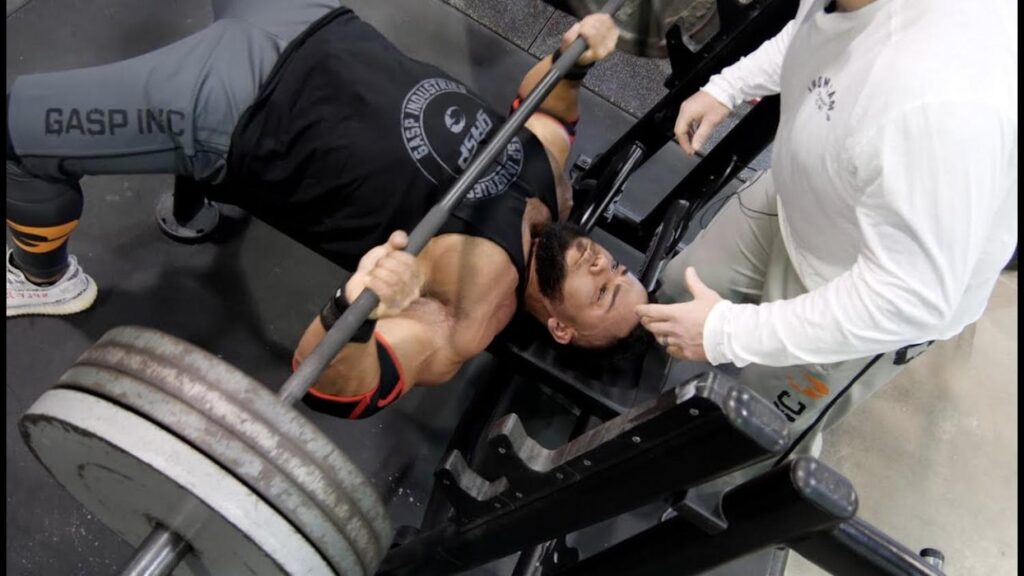
Chronicles of an African American Bodybuilder in Corporate America



I recently find myself in a conundrum.
I am an African-American male that works as part of a leadership team for a Fortune 500 Telecommunications company. As a leader I have been recognized for being one of, if not the best in my field. The problem is I also get recognized for being “Aggressive”, “Intimidating”, and “Menacing at times”.This type of feedback is given in response to why i am overlooked for promotion repeatedly over the past few years.
Full transparency, I am 5’11, 265 lbs. I have a very deep voice and I do not walk around with smiling at everyone, By nature, I am an introvert but i have consistently worked to not be limited by that and be open/friendly to everyone. I am a millennial, even though my personality doesn’t match, i am in the generation that needs information immediately! I was taught to walk with my head up, shoulders back, and with pride. That’s how I was raised. I was also raised to be honest, hard working, and not surround myself with individuals i do not trust because one of two things will happen, they will bring me down or I will speak my mind and cause unnecessary trouble for myself. I have a degree in Computer Science, I have a range of skills from programming to building and maintaining networks. Suffices to say that i have some intelligence.
All of these positive attributes are consistently overshadowed by my physical appearance. I constantly work to build and improve a work standard for front line employees, as well as the members of my leadership team that is repeatedly halted because my drive and passion for meeting these goals is perceived as “aggressive” or “abrasive” simply because of my voice and physical appearance.
I was recently “coached” for being aggressive during a refresher training. I asked two questions during that session. Now, I was told that the two questions I asked were very valid. It was just my delivery of those questions. I asked how I could have asked the questions differently, and I was told there was nothing wrong with the what I asked. (How the hell is that?!) I asked during that “coaching” conversation if my voice was the reason. They stated no, but i may want to try and soften my tone so that i don’t come across in an unprofessional way. I then proceeded to ask several clarifying questions… “did i speak out of turn, did i cut the trainer off while she was speaking, did I raise my voice” The answer was no to all of those questions.
With that being said I was told that in order to prevent from getting into further trouble in the future I need to smile more, and be more approachable. The problem with that statement is I smile all of the time and despite being introverted, am very approachable to everyone except for:
- those that try to get over on me
- those that have less than stellar job performance
- and those that are basically intimidated by what they see vs getting to know me
I began to research how many black males struggle with perceptions in Corporate America. I also looked into how muscular people struggle with perceptions of society in general. What i found was this scenario is just one example of the perception of black males in corporate America getting painted as a threat. If you add physically fit, with intelligence, and morals, then those perceptions are amplified 10 fold.
It was very interesting to read that there are many similarities to the struggles of black males in comparison to the struggles of muscular people. Both are seen as a threat just because of physical appearance. Both are given suggestions to stand a certain way, to sit down vs, standing when speaking to an audience, to not lean forward when engaging someone in conversation, to not make a spectacle of themselves by asking “unnecessary” questions (which is determined by someone else), the list goes on…
Now there are some positive suggestions that both sides share. Be the first to engage people in conversation to show that you are approachable and friendly. Actually thats the only positive one i found… :-/
The sad truth is that as a black male with a muscular body, I have to face double the perceptions and work twice as hard as everyone else just be seen in a positive light.
Bernard J Tyson shared the following excerpt with Fortune magazine:
” Let us begin, then, with one cold, hard-numbered truth: For much of corporate America, racial diversity continues to be at best a challenge—and at worst a flat-out fiction—particularly in the executive ranks. There have been only 15 black CEOs in the history of the Fortune 500, of whom five are currently in the role. (Ursula Burns, CEO of Xerox XRX -0.73% , is the only woman; Kaiser Permanente, the organization that Tyson runs, is a nonprofit and therefore ineligible for the Fortune 500.) Nor is it much better outside the corner office. According to a corporate diversity survey released last June by the office of Sen. Bob Menendez, a New Jersey Democrat, black men and women account for a mere 4.7% of executive team members in the Fortune 100 (the top 100 U.S. companies by revenue), a share that hasn’t budged since the survey was first conducted in 2011. Even at smaller companies, African Americans hold an estimated 6.7% of the nation’s 16.2 million “management” jobs, according to the latest figures from the Bureau of Labor Statistics, though they make up twice that share of the population at large.
Numbers, however, don’t capture the frustration that many black executives feel as they try to thrive and compete in a realm where race is often seen as an asterisk on their resumes and an unspoken subtext in conversations about career advancement. For black men, though, the challenges of the corporate life are daunting at least in part because they are sometimes hard to pin down—influenced as much by age-old prejudice as by cultural preconceptions, the subtleties of psychology, and the weight of human history (more on that soon). Black males are not seen as an option for leading executive positions many times simply because they do not look how someone believes they should, or they have ideas that are not accepted by their leadership. And many black males in positions of authority have built their own ideals of how things should work at their perspective companies. Sometimes those ideals do not agree with the status quo designed by company leadership and if they work to change the culture for the betterment said company, its viewed as “not supporting company initiatives.” Black males are in a constant battle to even the playing field that many times lasts the span of a career. This leaves many having the feeling of failure, or short-comings due to impenetrable glass ceilings put in place by white corporate America. “
Now couple those prejudices with the fact that I, as well as many other minority men are bigger,stronger, more muscular, or however you wish to describe an individual that lives a fitness lifestyle and those statistics are worse than what you see above. As I think about this, the scariest part of it all is that you can interchange the gender and minority type and see many of the same issues.
So the question becomes, what do we do about that? Do we smile, play the game by their rules, and just try to get by and not work towards the goals we set for ourselves? Or do we continue to fight and break down barriers that would help others like us in the future? My conundrum





